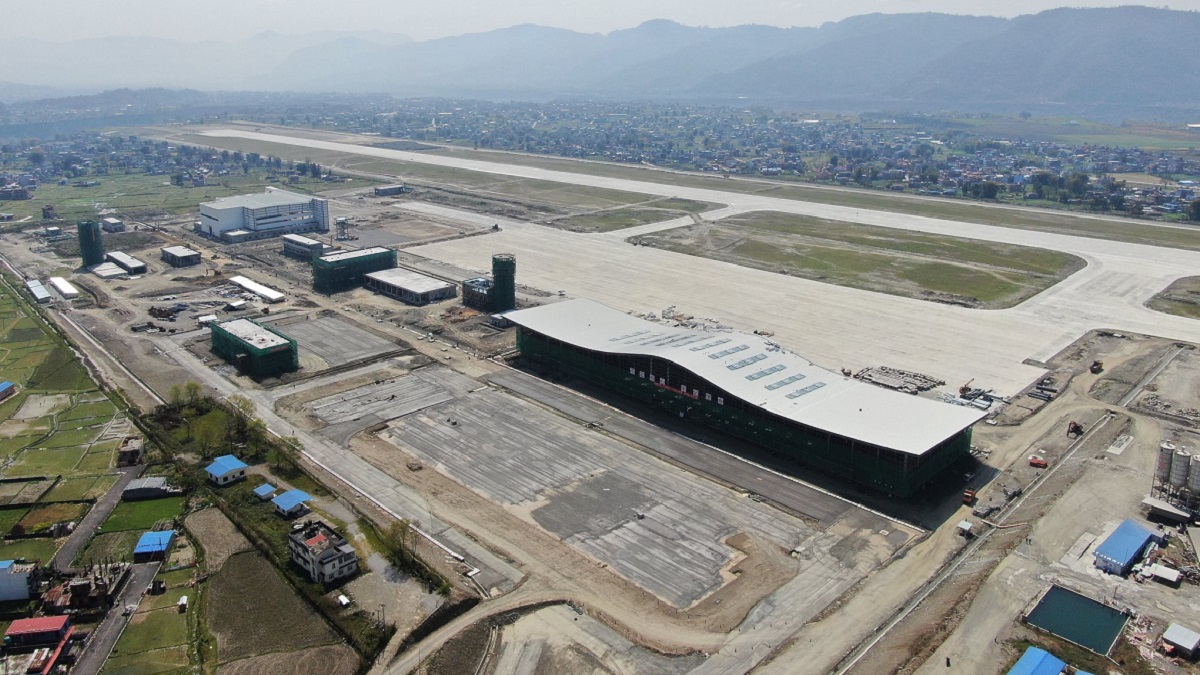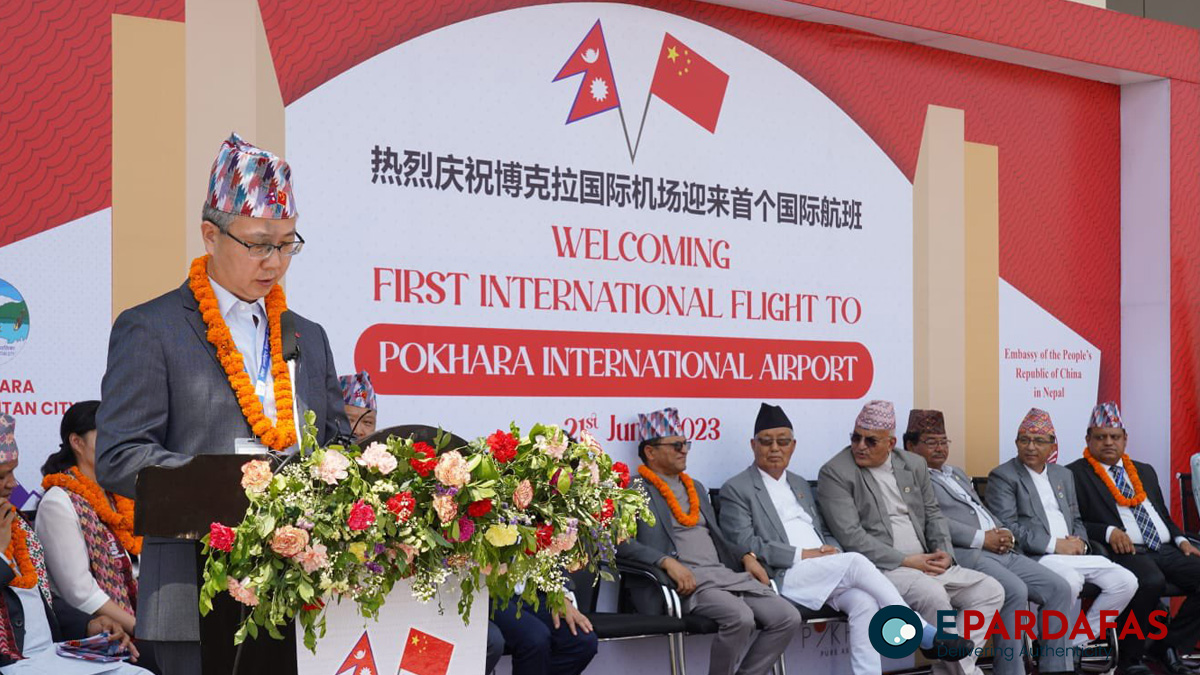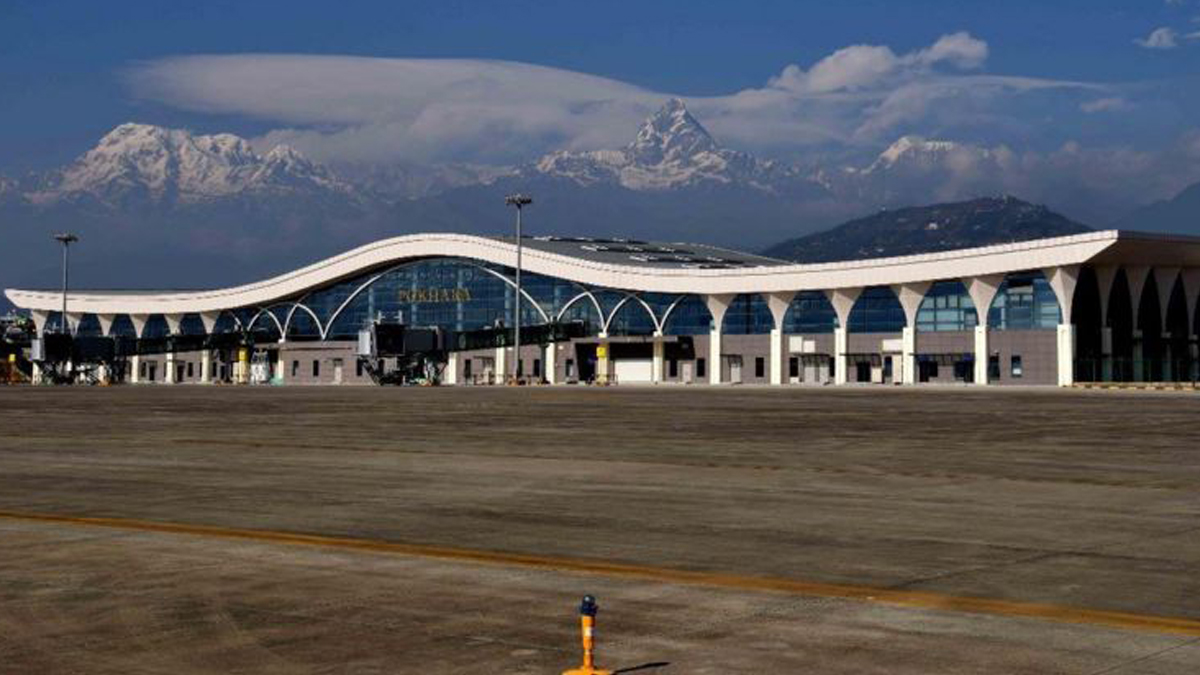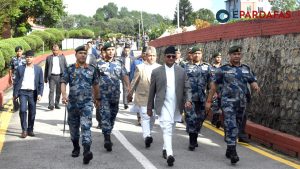
China-Built Pokhara Airport: Extreme Irregularities During Construction, CIAA Investigating
Nearly 50 years after its conception in 1975, Nepal’s Pokhara International Airport opened to much fanfare on 1 January 2023.
Meanwhile, the Commission for the Investigation of Abuse of Authority has intensified its investigation into suspicions of irregularities during the construction of the airport.
The Authority seized the documents related to the airport on October 29, 2023. Especially, as pointed out by the Office of the Auditor General, a question has been raised about the allocation of 2.22 billion, which was allocated by the Ministry of Finance to the project office for customs duties.
During the construction of the airport, a complaint was lodged with the CIAA citing doubling of the cost, manipulation in the contract process, substandard work during construction, etc. The authority that seized the documents to investigate these matters has been conducting an investigation. During the construction of the airport, Pradeep Adhikari, the Director General of the Nepal Civil Aviation Authority, served as the project leader.
In the 60th report of the Office of the Auditor General, it is mentioned that the country has suffered due to negligence in the construction of the airport’s financial and physical infrastructure. The Auditor General has identified issues such as non-compliance with the contract during construction, errors in the construction of the runway leading to increased state expenses, and additional expenditures attributed to consultants. This has raised questions regarding the accountability of the chief officer and other officials involved in the Pokhara airport construction project.
The construction of Pokhara Airport commenced on August 2, 2016, following an agreement between the Nepalese government and the Chinese state-owned contractor CAMCE. The contract, which included value-added tax (VAT), was signed for a total amount of US$ 244.04 million. To fund the project, the Nepalese government signed a loan agreement with China’s Exim Bank in 2015, securing a loan of 1.378 billion Chinese Yuan.
In the contract with the contractors, it was mentioned that they are responsible for paying taxes, fees, and charges, regardless of their location. However, despite the absence of a provision in the agreement, the audit report reveals that a total of 2 billion 224 million rupees have been granted as exemptions in customs duties, excise duties, and value-added tax (excluding internal taxes). When the company agreed to the contract, there was no mention of such exemptions, yet they were granted nonetheless.

Similarly, questions are raised on the construction of the runway. The airport was intended to be elevated according to the agreement between the Nepal Civil Aviation Authority and China CAMC Engineering Company Limited, using soil and gravel sourced from a distance of 5 km to increase its height compared to its current state. However, the Chinese company chose to utilize soil and gravel from the construction site itself, allocating 80 million US dollars solely for this purpose. By using onsite materials, the company managed to significantly reduce the substantial costs associated with transporting soil.
The report issued by the Office of the Auditor General last year indicates that the elevation of the runway was necessary.
According to sources within the authority involved in the investigation, while this decision has reduced costs, it has also necessitated the removal of a water tank. Additionally, there is now a situation where aircraft may have to take off with reduced payloads due to the airport not being elevated to the required height in deeper sections.
Essentially, this approach has resulted in cost savings for the Chinese company while inflicting long-term losses on Nepal. The Auditor General stated in their report, “Given that the builders were expected to source raw materials (stone, soil, and gravel) from a distance of 5 kilometers, paying royalty, the impact on external procurement and transportation by businesses should be analyzed.”

The OAG also raised questions about the work and expenses taken from the consultant. In the agreement between the authority and the construction contractor for the airport construction project, a provisional arrangement of 900 thousand US dollars had been made, but it was later reduced to 3 million 170 thousand US dollars. The construction contractor had included the consultancy fees of 2 million 800 thousand US dollars in the BOQ (Bill of Quantities), but it was reduced, leading to increased expenditure in that particular item. Consequently, a new consultant was appointed to compensate for the reduced consultancy fees, with an amount of 280 thousand US dollars.
Although a provision of 22 crores 98 lakhs Nepalese Rupees was made in the agreement for consultancy expenses, the actual amount spent has been reported to exceed the estimated amount by 65.15%. The OAG report highlights that this increase in expenditure has been observed despite the implementation of the project as per the agreed terms.
In the contract with Super Vision Consultancy, it has been stated in the provisional arrangement that a total of 19 crore 52 lakh Nepalese Rupees will be provided, and in the contract for advisory services, a disproportionate 53 percent burden has been placed in the provisional arrangement, as mentioned in the report highlighting the lack of appropriateness.
Nearly 50 years after its conception in 1975, Nepal’s Pokhara International Airport opened to much fanfare on 1 January 2023.
Earlier, it was revealed that the handover was done without installing the main equipment at the airport. The Instrument Landing System (ILS), one of the primary components necessary for aircraft landing at the airport, was installed only after the handover of the airport. Yeti Airlines’ plane had an accident in Pokhara before the installation of the ILS.













Comments